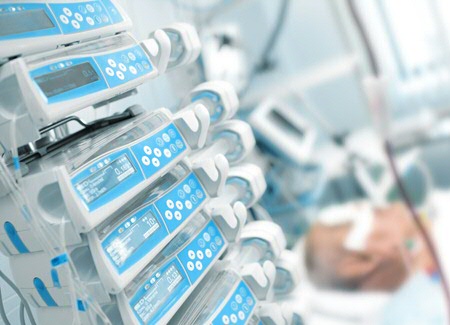Recovery after intensive care

Patients with severe pneumonia, septicaemia or respiratory problems: if all else fails, they will be admitted to an intensive care unit (ICU). Once discharged, it appears that they are often unable to easily resume their lives. Nearly half of all ICU patients (COVID cases not included) have long-term symptoms after their discharge. Researcher Lise Beumeler wants to improve that statistic.
‘I am looking forward to it’, responded Lise Beumeler of University of Groningen/Campus Fryslân (RUG/Campus Fryslân), having been invited for an interview. She believes that it is important to tell people about her research on the symptoms that ICU patients develop after their admission. ‘One of the reasons is that everyone knows someone who has been admitted to an ICU at some point’. Beumeler can explain her research in one sentence: ‘I want to identify the long-term symptoms that former ICU patients have and attempt to improve their recovery’. It soon appears, however, that this single sentence covers a world of unexpected problems.
Post-ICU care
For a long time, Beumeler explains, physicians focused on keeping people alive. ‘We are getting better and better in that respect but we are now learning that follow-up care is important, too. However, there is no infrastructure for such care. Some hospitals, for example Medical Center Leeuwarden (MCL), have an aftercare clinic but this is all still in its infancy’. However, nearly half of all former ICU patients have ICU-related symptoms. Beumeler: ‘Time spent at the ICU always comes at a price’.
No longer able to comb their hair
These may be related to their disease but may also be due to their hospitalization. ‘Doing nothing weakens the muscles. People are sometimes no longer even able to comb their hair anymore! Or they have mental problems because they have been frail and dependent and required help with their personal hygiene. Others may have altered taste sensations and swallowing disorders, causing them to eat less’. These are just some of their problems, according to Beumeler.

ICU cafés
Together with her supervisors Christiaan Boerma (intensivist at MCL) and Prof. Gerjan Navis (University Medical Center Groningen), Beumeler wants to widen the scope of aftercare. ‘You could offer people opportunities to play sports in a group or give them simple strengthening exercises that they can do at home while cooking. Or stress the importance of protein-rich food such as curd cheese for muscle recovery’. Beumeler also wants to set up ‘ICU cafés’, where people can discuss relevant issues. And she is working on a leaflet describing potential post-ICU symptoms. ‘People may experience problems such as hair loss and not even know that these may be caused by their hospitalization’.
Home visits
‘Beforehand, I believed the ICU was an exciting place but this idea was based on TV series’, Beumeler says with a smile. ‘Commotion, alarms going off: it’s nothing like that. On the contrary, everyone is calm and everything is under control. Nevertheless, seeing someone hooked up to all kinds of machines was a moving sight at first. And you often meet emotional relatives’. Do all patients actually want to receive aftercare? Some may want to close the book as quickly as possible. ‘Some indeed prefer not to have to go to the hospital again. In that case, I conduct my tests at their homes’. This has another advantage. The home situation often tells Beumeler a lot about how people are coping. Perhaps she is a researcher who is also a bit of a social worker? She smiles. ‘Yes, perhaps. A bit’.
Lise Beumeler is a PhD student at RUG/Campus Fryslân. She is currently conducting research at Medical Center Leeuwarden into ways to improve the recovery of patients who have been admitted to the ICU. (This article has been written before the corona crisis.)
More news
-
07 July 2025
The darker side of tourism
